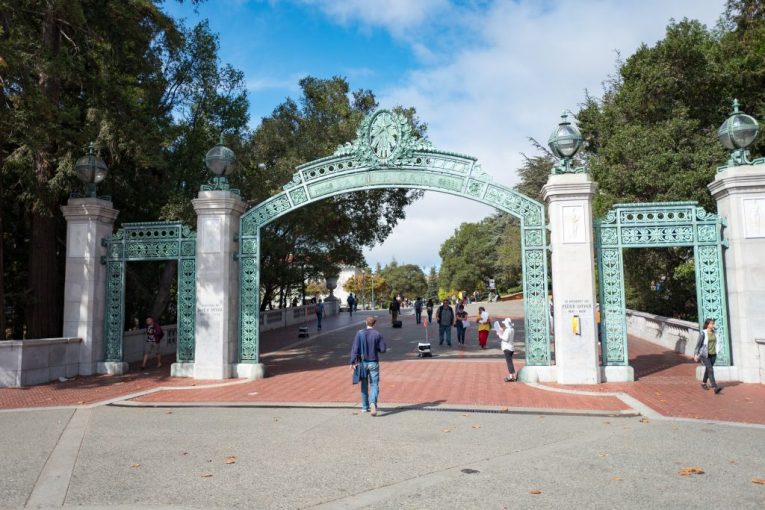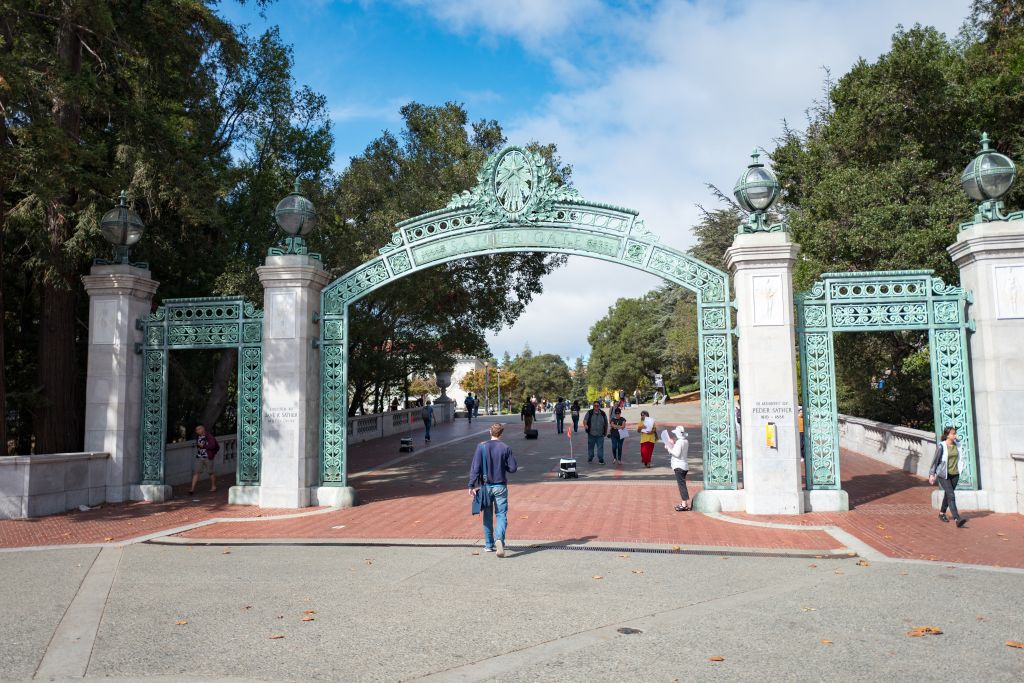

By David M. Greenwald
Executive Editor
Berkeley, CA – While the battle is between UC Berkeley and a neighborhood group, it is refreshing to see in an op-ed yesterday in the LA Times, the Berkeley mayor and two councilmembers coming down squarely on the side of educational opportunities for future UC Berkeley students.
“As the University of California’s flagship campus and one of the nation’s premier public universities, UC Berkeley has a duty to grow to meet the needs of each new generation,” Mayor Jesse Arreguín and Councilmembers Lori Droste and Rigel Robinson wrote this week. “As city leaders, we embrace that principle and have worked with the university administration to foster a symbiotic relationship that meets the needs of the campus and the broader Berkeley community.”
As reported earlier this week, a recent court order will require UC Berkeley to turn away one out of every three undergraduate students that they would have otherwise enrolled in the incoming fall 2022 class unless the California Supreme Court intervenes prior to March 23.
There will be 3,050 fewer seats for this fall’s class if the enrollment freeze remains in  place.
place.
“UC Berkeley is often a launchpad for upward mobility, helping first-generation and lower-income Californians build livelihoods, forge personal and professional connections, all of which help many give back to their communities,” they write, adding, “In recent years, each new class of UC Berkeley students has been more diverse than the last, and more of its students receive federal aid through Pell Grants than at any campus in the Ivy League.”
Thus, “[f]or thousands of would-be students, a freeze on UC Berkeley enrollment would forever change the course of their lives.”
In addition, they write, “With $57 million in lost tuition, it would significantly impact the campus’ ability to serve students, and in turn have a domino effect, cutting into financial aid, the number and type of classes offered, student services and facilities maintenance. When fewer of our children are able to pursue higher education, we all lose out — our cities, our local businesses and the future of California.
“We share the University of California’s profound disappointment in this decision and feel deeply for all the prospective students whose futures are now in limbo,” the leaders continue. “When disagreements arise, the city and university remain committed to finding common ground and fair compromises. But one thing we are in complete agreement on: The future of the next generation should never be compromised.”
On Monday, the UC Board of Regents formally asked the California Supreme Court to stay the order freezing enrollment, but many observers believe that the court will not step into this fight and, if it does, it might be too late to change things for the upcoming 2022-23 school year.
The court could stay the enrollment freeze, pending the sorting out of legal questions.
The mayor and councilmembers note, “The court’s decision will likely hinge on its interpretation of the California Environmental Quality Act, which began as a modest and well-intentioned environmental measure but has increasingly resulted in unintended consequences — of which an enrollment cap at UC Berkeley is merely one.”
They write, “As the court deliberates, we hope the threat of unfulfilled promises for higher education and the original intent of California’s environmental laws weigh heavily on the justices’ minds.
“Everyone should be worried when access to one of the state’s oldest and most acclaimed institutions of higher learning is reduced,” they explain.
“Neighbors of the campus — some of whom first came to Berkeley as students — who are seeking to limit the growth of the student body, cite the severity of the housing crisis as a reason to curb admissions,” they write. “Rather than slamming the door on the next generation of students, we should focus on building the dwellings, particularly student housing and permanent supportive housing, necessary to solve this crisis.
“The city of Berkeley and UC Berkeley are committed to doing just that, by rezoning the city for denser development and establishing new dormitories on all available campus sites.”
They argue that if the court allows this ruling to stand, “it has the potential to set a dangerous precedent for the whole of public higher education in California — and perhaps beyond.”
This is definitely an issue that hits home in other host cities like Davis, where the battle between the community, the university and the town always is contentious for housing.
Davis is fortunate this time. The city of Davis and its voters have approved a number of new housing projects. While Berkeley, with limited space, only has 22 percent of its students housed on campus, Davis has expanded its on-campus housing from 28 percent to nearly 48 percent, if all the planned housing under the LRDP is built out.
Moreover, the city and university and county have a joint MOU whereby they hope to work collaboratively in order to make sure there is sufficient housing into the future.

https://em-ui.constantcontact.com/em-ui/em/page/em-ui/email#






The major difference between UC Berkeley, the city of Berkeley and UC Davis and the city of Davis is that UC Berkeley is within the city limits of the city of Berkeley. So I’m going to assume that connection goes two ways; that the city is obligated to to plan for the housing UCB students and that since the UCB is within the city’s jurisdiction that it has a right to dictate to UCB how much it can grow/to what degree the city is willing to accommodate student housing.
Someone can clarify, but it seems to me that the city and university in Berkeley had a very contentious process on student housing, but it seems they are now on a similar wave length.
My comment was not about political will but of comparing circumstances. Another issue that the UC Berkeley has that UCD doesn’t face is geographical limitations to growth. UC Berkeley is surrounded on three sides by the rest of city of Berkeley. The back of UC Berkeley and the city limits goes up against the hills….even the Greek Amphitheatre is in the city limits. Building on hills is EXPENSIVE and expanding further back is even more prohibitive (environmental issues are the first thing that come to mind).
UCD has no such limitations. It has plenty of property under it’s control to grow as wells few geographical obstacles to grow even more so if it chose to do so.
Another note is that because the University falls in the city limits; there is an obligation to a certain degree to plan for housing for students of the university. That obligation along with the natural NIMBYism of the long term residents of the city of Berkeley make their contentious situation even more complex than UCD and the city of Davis’ situation. The two sort of work together but don’t really have to.
Just think of all the students that the UC system already turns down every year, relegating those poor students to a life of poverty and misery.
They probably should open a UC in every town, to ensure that this doesn’t occur. And then force all of those cities to accommodate the student housing that the UCs themselves don’t want to build.
Or even worse – relegates them to UC Merced. The horror.
In any case, college enrollments statewide (and nationwide) have been plummeting for years. The UC system might end up being one of the “last ones standing”. (And just to survive in that declining environment, they’ll have to accept anyone with a pulse.)
Yeah, those state schools and trade schools that lead to jobs that pay high 5 and low 6 figure salaries are a horrible fate.
If college enrollment is dropping…that’s a good thing. The idea that college is for everyone (so take out a student loan!) was moronic.
A sarcastic exaggeration, I realize. However, haven’t they already done-away with SATs, for example?
https://calmatters.org/education/higher-education/2021/11/uc-admissions-no-tests/
I would think that as enrollments continue to decline (statewide, and nationwide), the institutions which remain are going to have to accept a broader range of students (in terms of ability and preparedness). Which would likely further devalue the resulting education/degree, in general.
So UC enrollment growth in perpetuity as a positive is simply a given. Hmmm.
Yup, kind of hard to fathom when more housing sites in Berkeley are so scarce.
Alan M cited UC growth… KO ties that to UCB/Berkeley… as to UC as a whole, yes, I think that borders on a given, but also go “Hmmm” (perhaps for different reasons)
As to UCB/Berkeley, the City, KO’s comment may be valid… but he responded to a point apparently about UC as a whole…
OMG…
That’s because the YIMBYs have infiltrated their council.
But apparently, they haven’t (yet) had a chance to stack the court system. 🙂